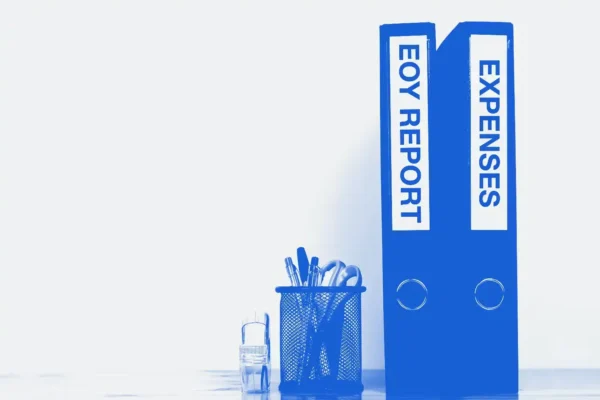
10 Questions to Ask Before Opening a Small Business Bank Account

If you’re a freelancer, solopreneur, or run a more traditional mom-and-pop small business, choosing where to open your small business account can have a big impact on your company’s success. As you research your options, there are certain things you should look for in a small business bank account. Here, we’ll review the top ten questions you should ask a bank or credit union before you decide to open an account.
1. Is there a minimum balance requirement?
Some banks and credit unions will require you to maintain a certain balance in your business checking or business savings account in order to avoid paying a monthly service fee. For instance, some financial institutions may require a minimum balance of $1,000, charging a fee between $5-$10 if your balance dips below that amount. But not all banks and credit unions have a minimum balance requirement, so it’s a good idea to find a financial institution that works for you with no minimum balance requirements. (Amplify will never charge you a minimum balance fee! Check out our fee-free business accounts.)
Get a Jump Start with Fee-Free Business Banking
You don’t need to worry about account fees, overdraft fees, or wire transfer fees.
2. Are you federally insured?
This is an important question when opening any account—whether for personal or business use. If you’re researching a bank for your small business banking needs, ask if they’re a member of the FDIC. On the other hand, if you’re looking at a credit union, be sure to ask if they belong to the National Credit Union Administration (NCUA). When your financial institution is a member of these organizations, it means that any money you deposit in your account (up to $250,000) is insured against loss by the federal government should the bank or credit union fail.
3. Does my business structure affect deposit insurance?
Once you’ve verified that the financial institution is insured, it’s a good idea to determine whether your business structure impacts the deposit amount that is insured. Some business accounts, such as those belonging to partnerships and LLCs, will receive up to $250,000 in deposit insurance from the National Credit Union Share Insurance fund. However, if you’re a sole proprietor, your business account may be treated as an individual account, meaning that the sum of deposits in your business account and your personal account at that institution will be combined when calculating the total balance for deposit insurance.
4. Do you offer business debit cards?
Debit cards are almost universally accepted by merchants and vendors, so having access to business debit cards for your checking account can allow you to quickly and easily make payments. If a bank or credit union does offer debit cards for business checking accounts, be sure to check the terms and conditions, as well as see if they offer any advanced security measures, such as ID theft and liability protection.
5. Do you charge fees for wire transfers?
Wire transfers are one of the most efficient and secure means to send money, both nationally and internationally. However, many banks will charge a fee to use their wire transfer services, which can drastically increase the price of doing business. Before opening an account with a bank or credit union, inquire if they have wire transfer fees, and if so, how much they charge. (At Amplify, we’ve gotten rid of all fees. Every single one!)
6. Can I withdraw funds at any ATM?
When you need quick access to cash, withdrawing funds from an ATM is usually the most convenient way to go. But some banks will make you pay for this convenience by charging you an out-of-network ATM fee, which can average over $4.00 per transaction. The flexibility to withdraw your own money from any ATM can save you time, stress and quite a bit of cash over time, so it’s a good idea to find a financial institution that does not levy ATM fees on its customers.
7. Do you offer business credit cards?
Creating a small business banking account with a financial institution that also offers business credit cards can save you the hassle of seeking out a separate credit card account and can often help you secure better credit terms for your business. When researching the best place to bank for you, determining whether they also offer business credit cards can help you determine whether that bank best suits your business needs.
8. Do you provide mobile banking?
Most banks now offer online banking, allowing you to make financial transactions online through their website. But if you need mobile banking—or the ability to access your checking and savings accounts anywhere at any time, you should ask whether they also offer a way to access your accounts on your phone or tablet through the use of a mobile app.
9. Do you have overdraft protection?
Cash flow for a small business owner can sometimes be unpredictable. To prevent failed payments to vendors or merchants, and to ensure your business continues to run smoothly, ask any potential bank or credit union whether they offer overdraft protection. This means the financial institution will pull funds from another of your accounts to cover any overdraft. In some cases, they may even offer a program that will cover the insufficient funds for a fixed period—allowing you to adjust your accounts and finances as necessary, without incurring any fees. (Our overdraft protection program is called Rebound—and we don’t charge a fee for this, either.)
10. Do you offer merchant services?
A key piece of any business is being able to accept payment for the products or services you provide. Many banks and credit unions will offer merchant services alongside more traditional financial services such as checking and savings accounts. Merchant services let you accept payments through point-of-sale systems, and having your POS integrated with your bank account can drastically simplify your business processes.
Make an Informed Business Decision
Knowing the key questions to ask when searching for a small business bank account—and why you should ask them—can help ensure you pick the account that works best for you. After all, where you choose to bank can have a significant impact on your day-to-day processes, saving you money over time and simplifying your daily tasks. So, do your research and make an informed decision to ensure your bank account works for you, not against you.
Ditch the Banking Fees
Learn more about our fee-free business accounts – perfect for small businesses in Austin and Central Texas.

